The Necrosphere
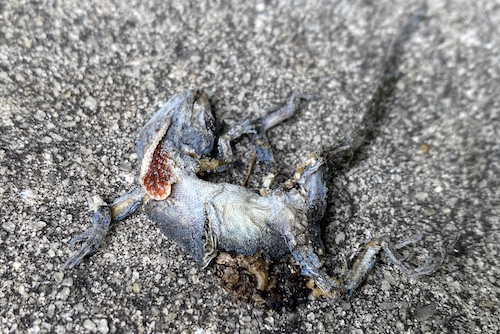
The What? (& Is that a dead lizard?)
The necrosphere & yes, ants were eating it too.
I know, I'd never heard of this word either! Necrosphere comes from the Greek nekrós meaning dead (as you may have guessed).
I first encountered the name of this layer of the Earth about 2 weeks ago while reading the book, The Nature of Nature, by biologist, professor, conservationist, and National Geographic explorer-in-residence Enric Sala.
As he elaborates in the book:
"The biosphere is the living layer of our planet; the necrosphere is the dead layer. It includes everything that was alive and is not anymore: the leaves that fall in the autumn and litter the forest floor, or a whale that dies and falls to the deep sea. The recent necrosphere is constantly in limbo. Dead matter is quickly recycled by scavengers: bacteria, fungi, and animals that eat detrius. Those colorful autumn leaves will be consumed right then and there, their constituent parts reintegrated into the food web." (124)
Accumulation:
An interesting thing about the necrosphere is that it doesn't accumulate. It is a temporary plane between life and rebirth. Everything in the necrosphere is reused or repurposed and returned to the biosphere in a new form. (Like in my compost pile!)
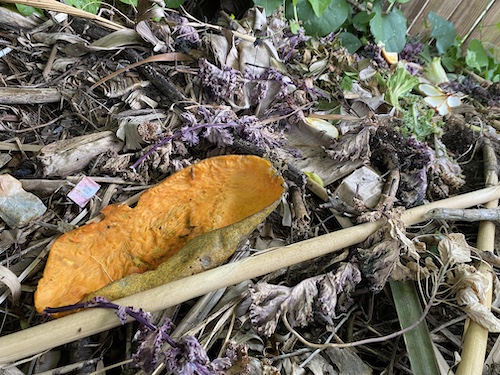
Unlike the human built environment, nature is a perfect circular economy ecosystem. Accumulation is the main difference. In our built environment, humans accumulate waste - mountains and mountains and ocean trash islands full of waste of all sorts and from many sources.
In the natural world when a life of any sort ends, the necrosphere makes sure that that life become a source for something else.
The Ancient Necrosphere, Our Cheat:
Generally, humans like to avoid thinking about and seeing death and decay at all costs, probably to our detriment. But our modern existence depends on the ancient necrosphere - the quickly killed ancient organisms that heat, time, and pressure turned into what we now call fossil fuels.
"We use energy from the past to subsidize our over exploitation of the present. That energy subsidy allows us to build artificial ecosystems (cities) that consume more energy (including food) than they produce. No other species can do that." (125)
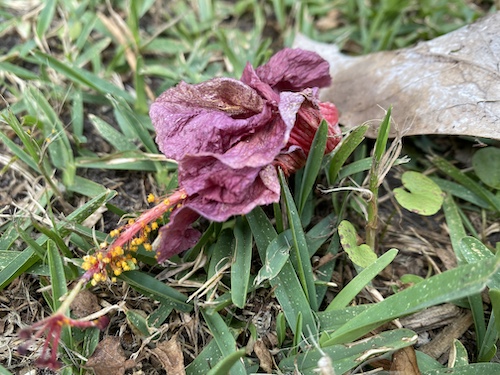
The author is clear to state he isn't making a judgement, but merely an observation. He simply points out that by discovering how to use the ancient necrosphere, humans have become planet Earth's hyper predator. We are becoming the asteroid that killed off the dinosaurs
A Planetary Ethic:
When we take without giving back, or produce without decomposing, we break the circle and destroy the earth's ecological economy.
But we don't have to. There is only a "perceived conflict between production and protection." (212)
We only have to work and live smarter - which is easily possible if humans can think and look toward the immense longer-term gains over the precarious shorter-term profits.
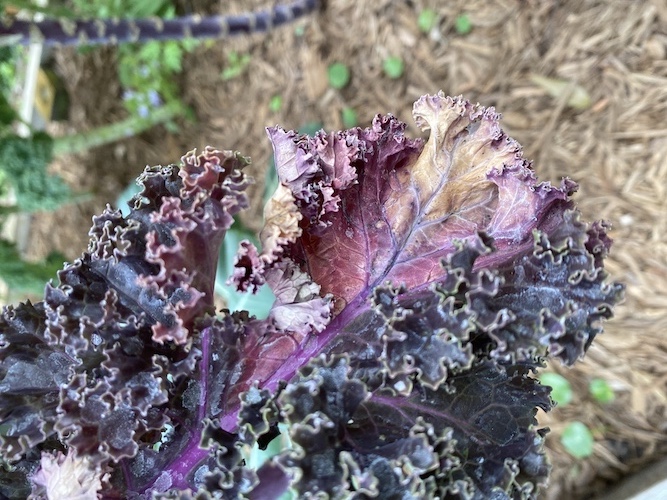
"...every living being on our planet, including ourselves [dead and alive], is linked in complex and inextricable ways to other living beings, no matter where their home is... we must see ourselves as part of an integrated whole, interconnected to, dependent on, and responsible for the entire natural world...
The planetary ethic moves humans away from a self proclaimed center of the world and into a humble and respectful membership in the greater biosphere, [necrosphere included!!] It moves us from a position over the natural world to a place within it." (222)
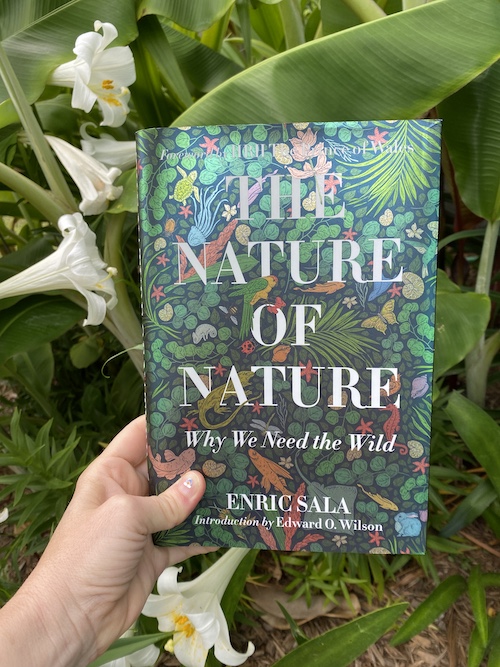
As you may have guessed, I highly recommend the book The Nature of Nature: Why We Need the Wild.
It would be a great gift for that anti-science or climate denying person who only talks GDP, because Sala's whole job is to convince powerful people like heads of entire countries to conserve their natural resources - and he begins this work by first helping those people to fall back in love with their cycles in their local nearby natural world.
How do you feel when you engage with the necrosphere?
Do you prefer to avoid it or are you more comfortable with it - or does it depend?
Share your thoughts in the comments and share photos of your necrosphere discoveries on Instagram #wingswormsandwonder
Seeds to Sprout:
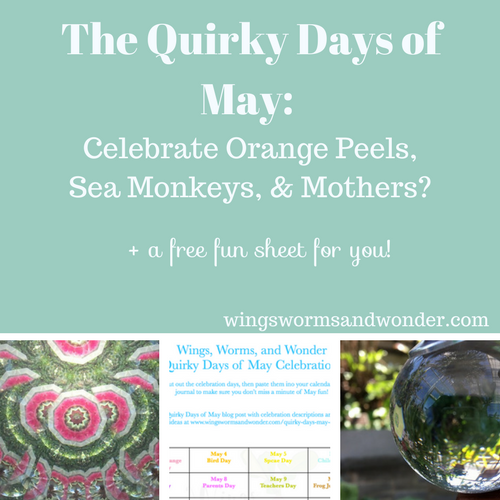
May prompts
Looking for a fun list of prompts for journal and life this May? Well check out this
Quirky Days of May Prompt pdf!
There are all kinds of silly holidays this month that could be used to prompt creative connection celebrations on everything from outdoor excursions to sea monkeys and more!
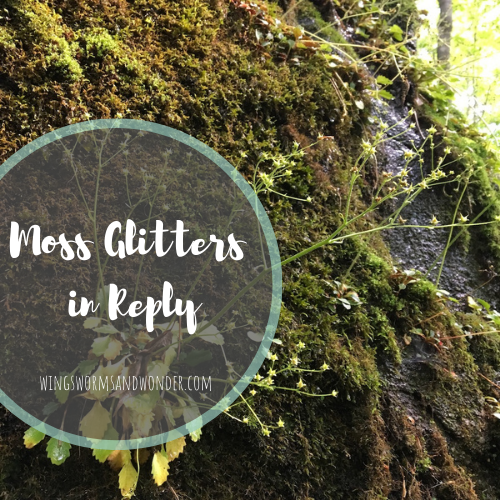
Moss Glitters
Want to delve into the necrosphere and how we relate to it in emotional and scientific ways? Or just looking for a superb book recommendation?
Check out this post inspired by Robin Wall Kimmerer's book Gathering Moss
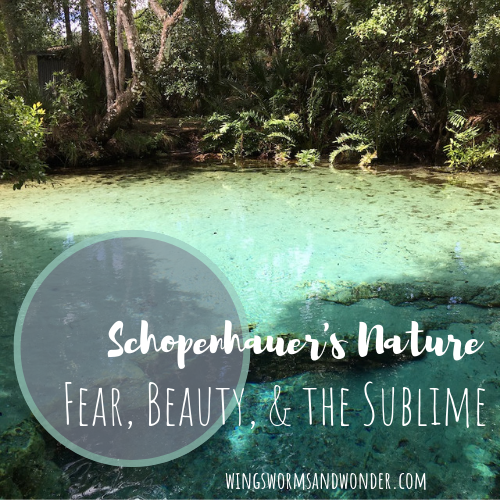
Schopenhauer's Nature
Fear, Beauty, and the Sublime. Nature provokes all these and more. Discover more about how Schopenhauer approached nature and the sublime and why a little bit fear makes the beauty of nature even more powerful.
